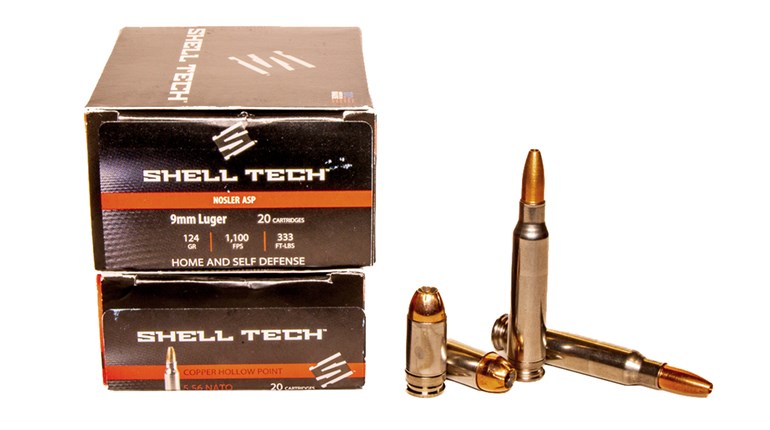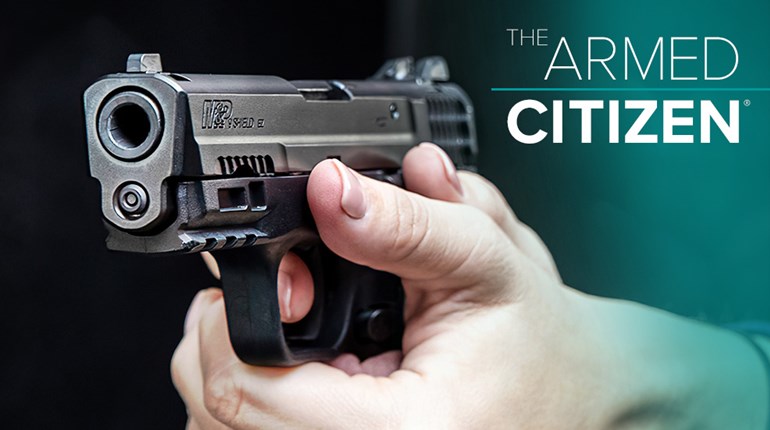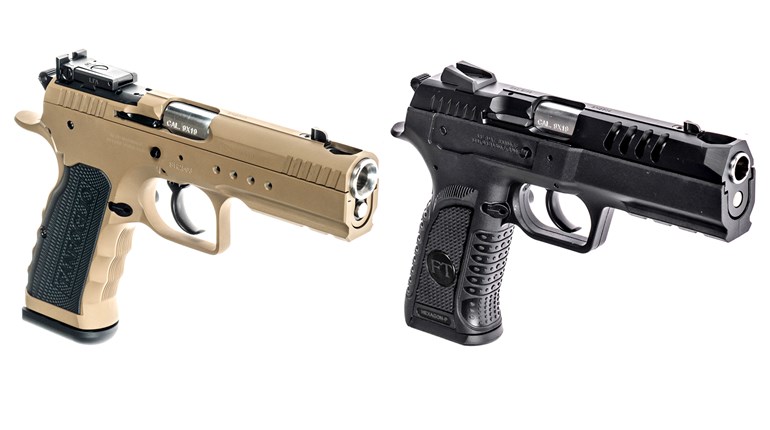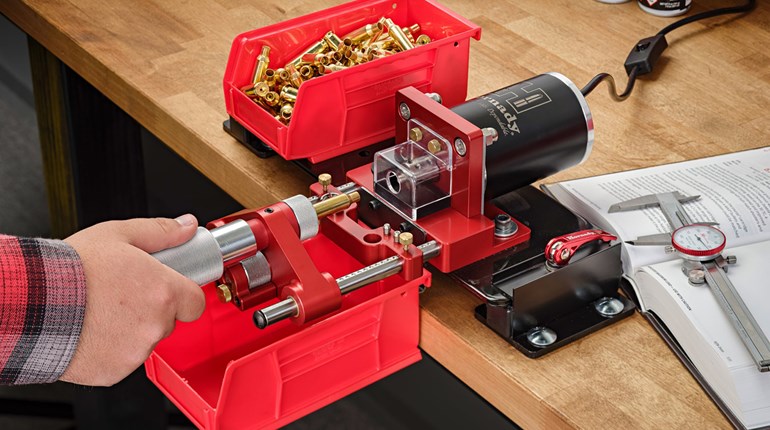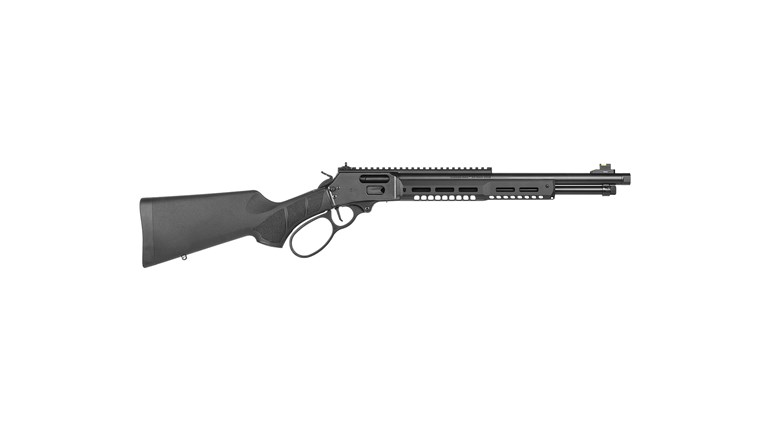
Throughout history, several firearms have become inexorably linked to a single cartridge. Colt’s 1911 will always be associated with the .45 ACP. When you think of lever-actions, you think of the .30-30 Win. And, the AR-15 is forever tethered to the .223 Rem./5.56 NATO.
Of course, that isn’t exactly correct, is it? Today, you can get 1911s and lever guns chambered for a variety of cartridges. The same holds true for the AR-15. But, is there a “best cartridge” for what has become known as the modern sporting rifle (MSR)? The answer is complicated.

With the arrival of the new millennium, the AR-15 saw many modular innovations, and new cartridges compatible with the platform started popping up. Counting wildcat cartridges, there may now be as many as 50 options. However, from a SAAMI (Sporting Arms and Ammunition Manufacturers Institute)-approved standpoint, a practical list includes the .223 Rem., 22 Nosler, 224 Valkyrie, 6 mm ARC, 6.5 Grendel, 6.8 SPC, .300 BLK, .300 HAMR, .30 Rem. AR, 7.62x39 mm, 350 Legend, .450 Bushmaster and .458 SOCOM.
Selecting the best of this bunch is dependent on what you want to shoot, as an AR-15 can be used for many things. Do you want to use your AR-15 for one thing, several things or everything? One way to compare AR-15 cartridges is to consider external ballistics and look at downrange performance. This, of course, never presents a comprehensive comparison; other things matter.
I’ve worked with all these cartridges, and those experiences—combined with ballistic comparisons and the other factors—might help you decide which one is best for you. I think the best way to present the information is from the standpoint of application.

Recreational Shooting
You can have fun on the range with any of these cartridges, but if volume of fire and whole-family compatibility are primary interests, it’s hard to find a better option than the light-recoiling 5.56 NATO. It will also run .223 Rem. ammunition, and there are a lot of inexpensive loads (well, normally; panic demand distorts pricing). There are also many optical sights with pre-calibrated reticles for the 5.56 NATO. With its subsonic capabilities, the .300 BLK is also an option, but its reach is limited even with supersonic loads.
3-Gun Competition
With the current courses-of-fire and round counts, the 5.56 NATO/.223 Rem. is clearly the best option for this type of high-volume shooting. With the increased interest in shooting at extreme distances, however, you can expect to see stages requiring shots at longer ranges popping up. That might make something like the 22 Nosler, 224 Valkyrie or even 6 mm ARC worth considering. However, particularly with the 6 mm ARC, magazine capacity will be a hinderance when more rounds are needed for a stage.

Self-Defense
All of these cartridges are capable of stopping bad guys, but real-world application means potential close-quarter engagement. With SBRs, the 6.8 SPC is probably the best option; that’s what it was designed for. The .300 HAMR is often overlooked for self-defense, but its 130-grain Speer HAMR Hot Core load is barrier-blind and delivers outstanding terminal performance. That said, you’ll find a wider selection of defensive loads for the .223 Rem.—and practice ammo costs less, too.
Suppressed Shooting
This is the simplest category to fill; the .300 BLK was made for subsonic shooting, and there are lots of subsonic loads to choose from. In fact, if you’re considering an additional upper, one in .300 BLK might be the best option for this purpose alone.

Varmint/Predator Hunting
What’s needed for this type of hunting is a flat trajectory and minimal recoil to permit impact observation. For that, the .223 Rem., 22 Nosler, and 224 Valkyrie are the clear winners. At 300 yards, their trajectories are so similar, felt-recoil is probably more important. So, too, is availability and variety of ammunition. Because of that, the .223 Rem. might be the best choice unless you plan to shoot critters well past 400 yards.

Big-Game Hunting
This includes deer and hogs, and even elk and moose. With range limitations, any AR-15 cartridge will work on smallish deer, but only a few have the bullet weight and mass suitable for really big or tough stuff. The best of the bunch, in my experience, is the .30 Rem. AR, but it’s as commercially dead as Betamax—maybe more so. The 350 Legend, .450 Bushmaster and .458 SOCOM work exceptionally well, but run out of gas at about 200 yards. The .300 HAMR, 6 mm ARC and 6.5 Grendel, will take you a lot farther, but at common hunting distances, the HAMR is hard to beat.

Long-Range Shooting
When it comes to hitting targets a long way off, what matters is time-of-flight. The faster the bullet gets to the target, the less time gravity and wind have to act upon it. With fast-twist barrels and high BC bullets, the .223 Rem. performs decently at distance, but for real long-range shooting with an AR-15, the best options are the 22 Nosler, 224 Valkyrie, 6 mm ARC and 6.5 Grendel. Serious long-range shooters shouldn’t make compromises; 6 mm ARC bullets will reach 1,000 yards before any of the others and they will also remain supersonic longer, too.
Survival
Survival rifles need to feed and protect you. Any AR-15 cartridge can accomplish this, but magazine capacity and the ability to carry lots of ammo becomes an important consideration. You can carry more .223 Rem. ammunition than any other AR-15 cartridge—40 rounds of .223 weigh about 1 pound, which is around 20 percent less than the most of the other cartridge options. There’s a reason that, even though there have been complaints and replacement attempts, the 5.56 NATO is still the cartridge of choice for the American military.

Overall Best
What if you want to do everything with your AR-15? If that’s the case, you’d want the most versatile cartridge. Because of the special requirements of long-range shooting and big—bigger than deer—game hunting, the 6 mm ARC and 6.5 Grendel are the only viable do-it-all options. However, hunting critters larger than feral hogs and shooting past 500 yards are outlying activities practiced by a minority of shooters. With its magazine capacity, minimal recoil and wide selection of lightweight munitions, it’s hard to argue against the .223 Rem./5.56 NATO as the optimum general-purpose cartridge for the MSR. But, everyone’s do-everything idea will be a bit different, so base your choice on what “everything” means to you.
Given the modularity of the platform, it’s also hard to argue against having multiple uppers chambered for other cartridges. That is, after all, a tremendous appeal of the AR-15; it is a true multi-cartridge platform. Why would you want to limit yourself to only one cartridge? Beyond want, it’s also not a bad idea to have other options should certain calibers (particularly .223 Rem./5.56 NATO) become scarce. Fortunately, alternatives abound, and plenty of quality firearms, upper receivers, magazines, loads and components exist for most of these choices.
AR-15 Cartridge Biographies

.223 Rem.: The original chambering for the AR-15, it’s a near twin to the 5.56 NATO. In fact, it’s safe to fire .223 Rem. ammunition in an AR-15 chambered for the 5.56 NATO. The reverse, however, could be unsafe due to the higher pressure of the 5.56 NATO. The .223 Rem. might just be the most popular rifle cartridge in America, and with bullet weights from 35 to 77 grains, it’s supremely versatile.

22 Nosler: Based on the 6.8 SPC case, the 22 Nosler is actually a legitimized version of a wildcat cartridge called the 22 PDK. The main difference is that the 22 Nosler has a rebated .378-inch rim—the same size as a .223 Rem. This allows for a .223 Rem. upper to be converted to 22 Nosler with nothing apart from a new barrel.

224 Valkyrie: This cartridge is also based on the 6.8 SPC case, but without the rebated rim. Federal smartly shortened this case and gave it a 30-degree shoulder, which allows it to use longer, more aerodynamic, higher-BC bullets. This makes it an excellent choice for distance shooting, with 20 percent less recoil than the 6 mm ARC.

6 mm ARC: Really nothing more than an updated version of the famous benchrest cartridge known as the 6 mm PPC, the 6 mm ARC is the flattest-shooting cartridge currently chambered in AR-15s. It will also remain supersonic at greater distances and deliver more energy on target at 1,000 yards than any other AR-15-compatible cartridge.

6.5 Grendel: Designed in 2003 by Alexander Arms and based on the .220 Russian/7.62x39 mm cartridges, the Grendel remained mostly a cult cartridge until it was formally recognized by SAAMI 8 years later. Since then, it has become a popular option for those who hunt big game or enjoy shooting at distance with AR-15s, as it stays supersonic past 1,000 yards with most available bullet weights.

6.8 SPC: The result of the Enhanced Rifle Cartridge Program and engineered to address the shortcomings of the 5.56 NATO in combat, the 6.8 SPC was ultimately legitimized by Remington and has been around for about 15 years. For close-quarters combat with short-barreled AR-15s, it’s probably superior to the 5.56 NATO. However, with regard to the variety of loads available, it cannot compare.

.300 BLK: This cartridge is a legitimized version of a subsonic wildcat cartridge called the .300 Whisper designed by J.D. Jones. It was approved by SAAMI in 2011 and is without question the best AR-15 cartridge for subsonic shooting. By virtue of its cool name (BLK is short for Blackout) and capabilities, for a time it was one of the most popular AR-15 chamberings.

.300 HAMR: Based on the .223 Rem. case and developed by Bill Wilson of Wilson Combat, the HAMR betters the ballistic performance of the .30-30 Win., making it one of the best big-game (particularly hog-hunting) cartridges available in the AR-15. It can also perform very well in a tactical environment.

.30 Rem. AR: Introduced in 2009, this was the first cartridge to turn the AR-15 into a true big-game hunting rifle. It was so poorly marketed by Remington that it never got much further than samples for writers, which is a shame. Now that Remington is functionally no more, it is unlikely to see a resurrection. It might actually have had the shortest commercial lifespan of any rifle cartridge, ever.

7.62x39 mm: Now more than 70 years old, this Russian cartridge gained fame in the AK-47. Due to improperly designed magazines, it had a history of less-than-ideal reliability in the AR-15, but that has changed as it has become more popular as a chambering in America’s Rifle. At supersonic velocities, it performs slightly better than the .300 BLK, and there is normally a lot of affordable ammunition available for it.

350 Legend: Based on the .223 Rem. cartridge case, the Legend was introduced by Winchester in 2019 for the explicit purpose of offering an AR-15 option in states that permit only straight-wall cartridges for deer hunting. Somewhat surprisingly, it saw nationwide acceptance in bolt-guns before ARs.

.450 Bushmaster: When it was first designed, the ,450 Bushmaster was known as the .45 Professional. With inspiration from Jeff Cooper’s “Thumper” concept, the Bushmaster was developed by Tim LeGendre of LeMag Firearms in conjunction with Hornady and Bushmaster. Like the .284 Win., the straight-walled .450 Bushmaster has a rim rebated to .473 inch.













